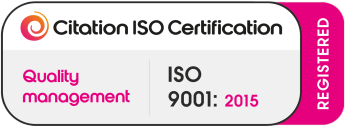Change management vs project management: Is there a difference?

Though often used interchangeably, it's important to understand if there’s a difference between change management and project management. So let’s clarify exactly what these two disciplines mean and get into some best practices too.
Key differences: Change management vs project management
“Change management is the overarching approach taken in an organisation to move from the current to a future desirable state, using a coordinated and structured approach in collaboration with stakeholders” as defined in the APM Body of Knowledge 7th edition. In a nutshell, change management is a strategic approach to navigate organisational change.
Change management includes planning, coordination, and support for individuals and teams, helping them to navigate the change process successfully. In contrast, project management revolves around the planning, execution, and control of specific projects, ensuring they’re delivered within budget, on schedule, and meet the desired objectives. Essentially, projects are the fuel that feeds the engine of change for an organisation.
While change management and project management share similarities in terms of planning and execution, their objectives and focus does differ. Change management mainly concentrates on the people aspect of change, keeping all stakeholders aware of the changes and outcomes.
Change management generally places greater emphasis on the human element of change, ensuring that employees are engaged, motivated, and equipped with the necessary skills to adapt to new processes, systems, or organisational structures.
On the other hand, project management is more task-oriented, prioritising the technical aspects of project implementation, such as defining objectives, allocating resources, and managing timelines. Project management puts more emphasis on implementing the tasks and allocation of resources required to achieve the project deliverables.
By understanding the difference between change management and project management, you can effectively use both to drive successful transformations and project outcomes.
The role of change management
Effective change management plays a key role in organisational transformation, ensuring that employees are well-prepared and supported throughout the change process. It creates a culture of adaptability and resilience, where employees view change as an opportunity for growth rather than a threat.
One of the primary responsibilities of change management is to communicate the reasons for change and the benefits it brings to your organisation. This involves creating clear and compelling messages, using diverse communication channels to reach various stakeholders, and addressing any concerns or resistance that may arise. As the name suggests, it’s about managing the change and the impact of that change on the wider business.
The role of project management
Project management is centred around the execution of specific initiatives. It involves establishing project goals, identifying necessary tasks and resources, and developing a well-rounded plan to ensure timely and budget-conscious delivery.
A project manager bears the responsibility of overseeing project execution, coordinating team activities, and monitoring progress against the established project plan. They are also accountable for managing and mitigating any potential risks or issues that may arise during the project, making necessary adjustments to ensure successful completion.
Effective project planning and organisation are crucial in project management. This involves breaking down the project into manageable tasks, assigning responsibilities to team members, and establishing clear deadlines and milestones to track progress.
Integrating change management and project management
Change management and project management are crucial if you’re seeking successful change implementation.
By incorporating change management into your project management process, you can effectively address the human element of change. Change management activities, such as communication, training, and stakeholder engagement, can be accounted for right from the beginning within the project plan.
Integrating change management and project management also helps minimise resistance and increase employee buy-in. By involving your employees in the change process and addressing their concerns and needs, you can foster a sense of ownership and commitment to the project, this increases the likelihood of success.
Best practices for successful change management
By implementing change management best practices, you can navigate transitions smoothly and achieve desired outcomes. Here are key strategies to consider when managing change:
- Start with a clear vision: Articulate the purpose and benefits of the change. Clearly communicate the desired outcomes to align your organisation and inspire commitment.
2. Engage stakeholders: Involve your key stakeholders from the outset. Their input, support, and buy-in are crucial for successful change implementation. Keep them informed and engaged throughout the process.
- Communicate effectively: Develop a comprehensive communication plan. Ensure messages are clear, consistent, and tailored to different audiences. Transparent and timely communication helps foster understanding, reduces resistance, and encourages collaboration.
- Provide training and support: Empower your employees with the necessary skills and knowledge to adapt to the change. Offer comprehensive training and development programs to support their transition. Providing ongoing support and resources helps reinforce confidence and minimises disruption.
- Monitor and evaluate progress: Regularly assess the impact of the change initiative. Monitor key performance indicators, gather feedback, and identify areas for improvement. Adjust strategies as needed to ensure the change is on track and delivering expected results.
Best practices for successful project management
To achieve successful project outcomes, effective planning, organisation, and execution are essential. Here are some best practices that can help you navigate the project management journey with confidence and achieve your desired results:
- Clearly define project objectives: This involves outlining the purpose, scope, and desired outcomes of the project. Having a well-defined objective provides a roadmap for the entire project team and ensures everyone is aligned towards a common goal.
- Develop a detailed project plan: Breaking down the project into smaller tasks and developing a comprehensive project plan is crucial for effective project management. This involves setting clear deadlines, identifying dependencies, and allocating resources accordingly. A detailed project plan serves as a blueprint for the project, providing structure and guidance.
- Assign responsibilities: This includes defining tasks, deliverables, and expectations for each individual. By ensuring that everyone understands their responsibilities, you can foster accountability and create a collaborative environment where tasks are completed efficiently.
- Monitor progress: This step needs you to measure key performance indicators, conduct regular status meetings, and utilise project management software to keep stakeholders informed – we recommend Fluid of course. By closely monitoring progress, you can proactively address any challenges that arise and take necessary corrective actions.
- Manage risks and issues: Conduct a thorough risk assessment to identify potential risks and develop contingency plans to mitigate their impact. Promptly addressing any issues that arise during the project minimises disruptions and ensures the project stays on course.
By following these best practices, you can enhance your project management approach and improve the chances of achieving successful project outcomes. Remember, effective project management is a continuous learning process, and adapting these practices to suit your specific project needs is key to success.
Change management vs project management: which is right for your organisation?
Change management and project management are both needed to keep your organisation agile and innovative, but they have distinct focuses and objectives. The choice between the two depends on the nature of your initiatives and the desired outcomes, requiring a thoughtful approach.
If the primary goal is to navigate change and ensure that your employees are engaged and supported throughout the process, change management becomes the appropriate approach. By employing effective communication strategies, fostering a culture of openness, and providing necessary resources, you can effectively manage change initiatives.
If the primary goal is to execute a specific project within a defined scope, project management takes the lead. This involves defining project objectives, creating a detailed plan, allocating resources, and monitoring progress to ensure timely completion.
In many cases, you will need to integrate both change management and project management to achieve overall success. By leveraging the strengths of both, you can effectively manage change initiatives while ensuring that projects are delivered on time, within budget, and with the desired outcomes. This integration allows for a seamless transition, ensuring that change is implemented successfully while projects progress smoothly.
By recognising the importance of both change management and project management, you can make informed decisions and tailor their approaches to specific situations. It is through this strategic alignment that organisations can effectively navigate change, execute projects, and drive success.
See how Fluid enables your business to deliver the right strategic change















